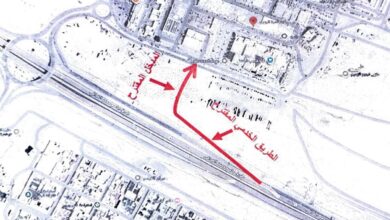Kuwait’s deceased exempt from paying their loans

One of the most frequently asked questions among borrowers, especially the elderly and their heirs, is about the fate of the remaining installments owed by the customer in the event of his death, and whether the heirs must commit to paying the debt of the “deceased”, even if his loan was a combined consumer and housing loan of 95 thousand dinars (the maximum allowed for financing individuals), or are the instalments automatically waived away.
Responsible banking sources revealed that deceased borrowers in Kuwait who have consumer, installment or housing facilities are exempt from paying any remaining obligations, except for limited cases, in which the financing entities can freeze the deceased’s balances, or even prosecute the heirs legally.
To simplify, Kuwaiti banks and local financing institutions, under the direction of the Central Bank of Kuwait, have activated the life insurance procedure for all individual clients included in their financing portfolios, with local insurance companies.
Insurance contract
According to the regulatory directive in this regard, the customer bears half the value of the insurance, provided that its total cost does not exceed 2 percent of the total insurance on his loan. This is provided the customer agrees to the procedure, as the matter must be presented to him as a contractual option, and customers often accept this clause.
Sources indicated that there are banks that have decided to bear the entire insurance cost, thus collecting the percentage set for them and the customer, in an attempt to woo customers from outside the bank with a competitive advantage that will attract them, noting that in this case, even if the customer does not accept in his contract to buy insurance, the insurance company contracted with the bank will undertake to pay the remaining installments of the deceased.
As a binding result of the insurance procedure followed by the financing parties, the insurance company contracted with is responsible for paying the remaining installments of the customer after his death, regardless of their value, even if the loan is new, and even if the customer has not paid a single installment of it.
The sources explained that the insurance company is not legally authorized to refer to the heirs of the deceased customer, as it does in cases of car insurance, which refers legally to the second party to return the value of the insurance premiums it paid.
As a result, the loan is written off in the books of the financing party and also in the records of the insurance company, which in turn contracts with a reinsurance company to reduce the risks of these exposures.
Sources reported that the insurance procedure for customer loans is limited to the risks arising on the financing portfolios from default cases due to death.
Payment of value.
But what happens if the client does not agree as per his contract to insure his loan, and the financing bank does not undertake to pay the full value of the insurance, as most financing entities do?
In this regard, sources explained that the lending bank has the right to freeze the customer’s balance, especially if he is an employee, specifically the value that covers the rest of his installments. This procedure includes seizing current accounts, end-of-service gratuity, and deposits, while the bank has the right to refer to the heirs if the seized balance is not sufficient for the debt due.
Loan guarantee
However, if the loan is granted against a guarantee, whether it is shares, real estate, or other credit-based mortgages, the bank will take legal measures to liquidate the guarantee, and this is what usually happens, especially if the debt is of significant weight and deserves litigation.
Sources noted that in all cases, the procedures for suing the heirs, “in the event that the loan is not insured,” are limited to the money or assets that accrue to them from the deceased, and not to the personal wealth they own.
This means that the creditor bank has no right to freeze the heir’s balance or seize his personal property in payment of his father’s debt or any of his heirs. If the deceased has nothing to bequeath, the financing entity will delete the loan from its books and build up allocations equivalent to the remaining installments, considering them bad debts.















